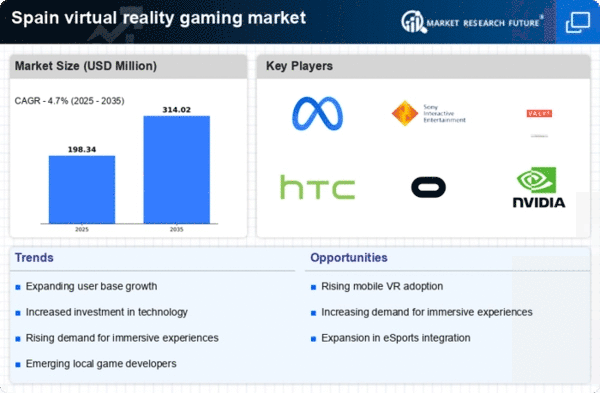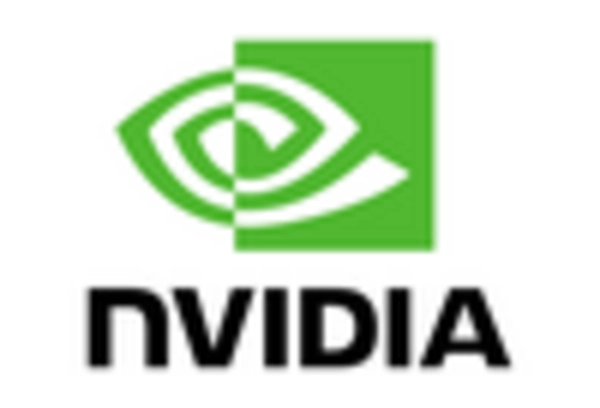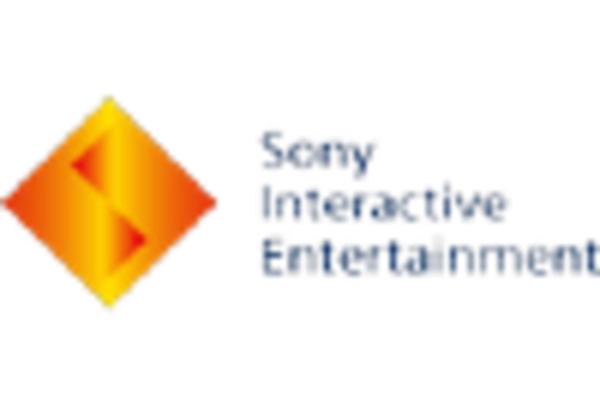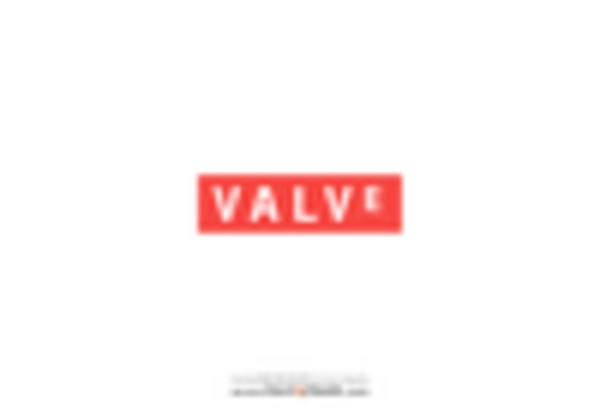Increased Consumer Demand
The virtual reality-gaming market in Spain experiences a notable surge in consumer demand, driven by the growing interest in immersive gaming experiences. Recent data indicates that approximately 35% of gamers in Spain express a preference for VR gaming over traditional formats. This shift is likely influenced by the enhanced realism and interactivity that virtual reality offers. As more consumers seek out these experiences, the market is expected to expand significantly. The increasing availability of affordable VR headsets and accessories further fuels this demand, making it accessible to a broader audience. Consequently, the virtual reality-gaming market is poised for substantial growth as it aligns with consumer preferences for innovative and engaging gaming solutions.
Social Interaction Features
The integration of social interaction features within virtual reality games is emerging as a vital driver for the virtual reality-gaming market in Spain. Gamers increasingly seek experiences that allow them to connect with others, and VR provides unique opportunities for social engagement. Recent surveys indicate that 60% of VR gamers value multiplayer experiences that facilitate interaction with friends and other players. This trend suggests that developers are likely to focus on creating more social features in their games, which could enhance user retention and attract new players. Consequently, the virtual reality-gaming market may see a rise in popularity as social interaction becomes a central aspect of the gaming experience.
Investment in VR Development
Investment in the development of virtual reality technologies is a critical driver for the virtual reality-gaming market in Spain. With venture capital funding for VR startups increasing by 40% in the last year, there is a clear indication of confidence in the potential of VR gaming. This influx of capital allows for the exploration of new gaming concepts and the enhancement of existing technologies. Furthermore, established gaming companies are allocating significant resources to VR development, which may lead to the creation of groundbreaking games and experiences. As a result, the virtual reality-gaming market is likely to benefit from a continuous stream of innovative content that captivates players and drives market growth.
Expansion of Gaming Platforms
The virtual reality-gaming market in Spain benefits from the expansion of various gaming platforms that support VR technology. Major gaming companies are increasingly integrating VR capabilities into their platforms, which enhances the overall gaming experience. For instance, the introduction of VR-compatible titles on popular consoles and PCs has led to a 25% increase in VR game sales in the past year. This trend suggests that as more platforms adopt VR technology, the market will likely see a corresponding rise in user engagement and revenue. Additionally, the collaboration between hardware manufacturers and game developers is expected to yield innovative titles that further attract gamers to the virtual reality-gaming market.
Educational and Training Applications
The virtual reality-gaming market in Spain is also influenced by the growing interest in educational and training applications of VR technology. Institutions and organizations are increasingly recognizing the potential of VR for immersive learning experiences. For example, VR simulations are being utilized in fields such as healthcare and engineering, providing realistic training environments. This trend indicates that the market is not solely limited to entertainment but is expanding into educational sectors, which could lead to a diversification of the user base. As more educational institutions adopt VR technology, the virtual reality-gaming market may experience a broader acceptance and integration into various aspects of learning and training.















